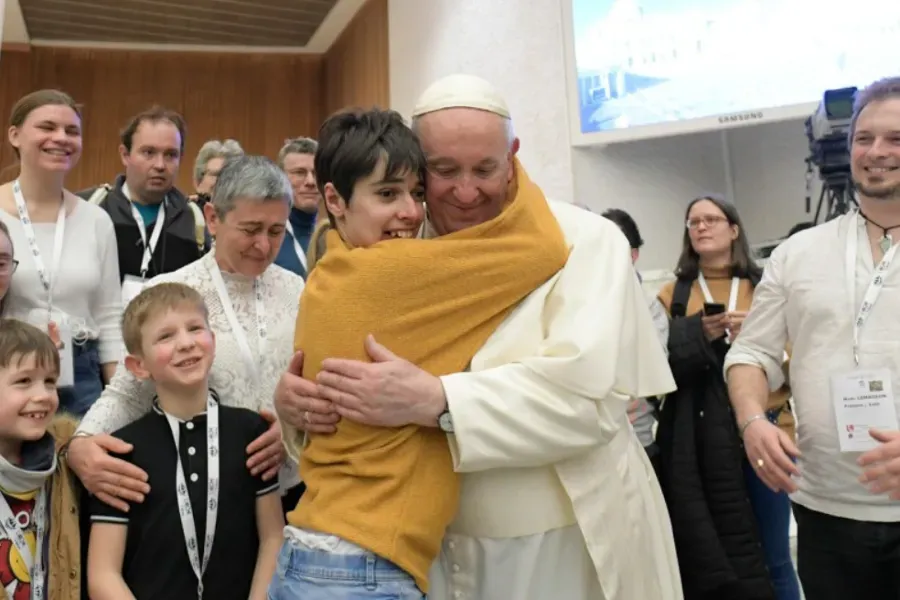“Dear brothers and sisters, it is only through faith in resurrection that we can face the abyss of death without being overwhelmed by fear. Not only that: we can restore a positive role to death,” he said.
Death, he said, helps believers to see the troubles of daily life in perspective and shows the paramount importance of charity and sharing with others.
He then reflected on care for the dying, emphasizing that doctors must make every effort to cure the sick.
But, he said, “it is immoral to engage in futile treatment,” citing the Catechism of the Catholic Church (2278), which says that “discontinuing medical procedures that are burdensome, dangerous, extraordinary, or disproportionate to the expected outcome can be legitimate.”
He highlighted what he described as the “real problem” of “accelerating the death of the elderly.”
(Story continues below)
“Many times we see in a certain social class that the elderly, because they do not have the means, are given less medicine than they would need, and this is inhuman: this is not helping them, this is pushing them earlier towards death,” he said.
He urged the authorities not to isolate the elderly or hasten their deaths.
Concluding his address, the pope noted that in the Hail Mary prayer, Catholics ask the Virgin Mary to be close “at the hour of our death.”
“Precisely for this reason, I would like to conclude by praying together a Hail Mary for the dying and for those who are experiencing bereavement,” he said, before reciting the prayer with pilgrims.
A summary of the pope’s catechesis was read out in seven languages and he greeted members of each language group.
Addressing English-speaking Catholics, he said: “I welcome all the English-speaking pilgrims taking part in today’s audience, especially the representatives of the Global Christian Forum and the seminarians and student groups from the United States of America. Upon all of you, and your families, I invoke the joy and peace of Jesus our Lord. God bless you!”
Before offering his final greeting, to Italian speakers, Pope Francis thanked Catholics who took part in the day of prayer for peace in Ukraine on Jan. 26,
He said: “Let us continue to implore the God of peace, that tensions and threats of war may be overcome through serious dialogue, and that the talks in the ‘Normandy Format’ may also contribute to this end. Let us not forget: war is madness!”
He also looked ahead to Feb. 11, which marks the World Day of the Sick.
“I would like to remember our dear sick people so that all may be assured of health care and spiritual accompaniment,” he said.
“Let us pray for these brothers and sisters of ours, for their families, for health and pastoral workers, and for all those who care for them.”








